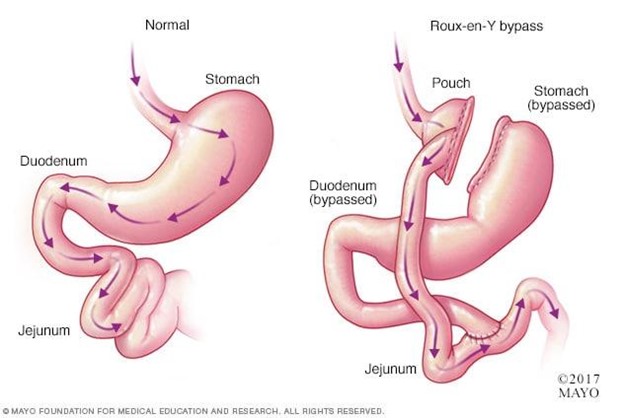More Questions
More Questions ( 22 Questions)
A nurse is providing teaching to a client who has dumping syndrome due to gastric bypass surgery.
Which of the following dietary modifications should the nurse recommend?
Eat small, frequent meals throughout the day. This will help prevent dumping syndrome, which is a condition that occurs when food moves too fast from the stomach to the duodenum, causing symptoms such as abdominal cramps, diarrhea, nausea, vomiting, flushing, dizziness and rapid heart rate. Eating small, frequent meals will reduce the amount of food that enters the small intestine at once and slow down gastric emptying.
Drinking fluids with meals rather than between meals will increase the volume of food that enters the small intestine and worsen dumping syndrome symptoms. Fluids should be consumed at least 30 minutes after a meal.
Increasing intake of simple carbohydrates such as fruit juice will cause a rapid rise and fall of blood sugar levels, leading to late dumping syndrome symptoms such as sweating, hunger, low blood sugar, fatigue, dizziness and weakness. Simple carbohydrates should be avoided and replaced with complex carbohydrates such as whole grains, fruits and vegetables.
Avoiding foods that are high in fat and protein will not help prevent dumping syndrome. In fact, fat and protein can slow down gastric emptying and stabilize blood sugar levels. A moderate amount of fat and protein should be included in each meal. However, too much fat at one time can have the opposite effect and trigger dumping syndrome symptoms.
Eat small, frequent meals throughout the day. This will help prevent dumping syndrome, which is a condition that occurs when food moves too fast from the stomach to the duodenum, causing symptoms such as abdominal cramps, diarrhea, nausea, vomiting, flushing, dizziness and rapid heart rate. Eating small, frequent meals will reduce the amount of food that enters the small intestine at once and slow down gastric emptying.
Choice B is wrong because drinking fluids with meals rather than between meals will increase the volume of food that enters the small intestine and worsen dumping syndrome symptoms. Fluids should be consumed at least 30 minutes after a meal.
Choice C is wrong because increasing intake of simple carbohydrates such as fruit juice will cause a rapid rise and fall of blood sugar levels, leading to late dumping syndrome symptoms such as sweating, hunger, low blood sugar, fatigue, dizziness and weakness. Simple carbohydrates should be avoided and replaced with complex carbohydrates such as whole grains, fruits and vegetables.
Choice D is wrong because avoiding foods that are high in fat and protein will not help prevent dumping syndrome. In fact, fat and protein can slow down gastric emptying and stabilize blood sugar levels. A moderate amount of fat and protein should be included in each meal. However, too much fat at one time can have the opposite effect and trigger dumping syndrome symptoms.

